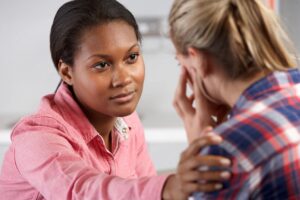Hearing loss doesn’t happen overnight—at least, not in most cases. While some people experience sudden hearing damage, most cases develop gradually due to a variety of factors. Some of these causes are preventable, while others may be out of your control. Knowing what puts your hearing at risk can help you take steps to protect it.
The Role of Noise Exposure
One of the most common culprits behind hearing loss is excessive noise. Whether it’s blaring music at a concert, the roar of power tools, or even prolonged headphone use, loud sounds can permanently damage the tiny hair cells in your inner ear. Unlike other cells in the body, these do not regenerate, meaning that damage is irreversible.
If you frequently find yourself in loud environments, wearing ear protection and taking breaks from noise can go a long way in preserving your hearing. Even something as simple as lowering the volume on your headphones can help.
The Impact of Ear Infections
Ear infections aren’t just painful—they can also contribute to temporary or permanent hearing loss. Infections that lead to fluid buildup can block sound from passing through the ear properly. Chronic infections, if left untreated, can cause long-term damage to the middle ear, leading to lasting hearing difficulties. If you or your child experiences recurrent ear infections, consulting a doctor for proper treatment is crucial.
Aging and Hearing Loss
Age-related hearing loss, or presbycusis, is another major factor. As we get older, the structures in the inner ear naturally deteriorate, making it harder to hear high-pitched sounds and follow conversations in noisy settings. While aging itself can’t be stopped, regular hearing check-ups and the use of hearing aids when necessary can help maintain communication and quality of life.
Medical Conditions and Medications
Certain health conditions, like diabetes and high blood pressure, have been linked to hearing loss. Poor circulation can affect the blood flow to the inner ear, leading to damage over time. Additionally, some medications—known as ototoxic drugs—can harm hearing. These include certain antibiotics, chemotherapy drugs, and even high doses of aspirin. If you’re on medication and notice hearing changes, talk to your doctor about possible alternatives.
Physical Damage to the Ear
Head injuries, sudden pressure changes (such as those experienced during scuba diving or air travel), and inserting objects into the ear can all result in hearing loss. Trauma to the eardrum or inner ear can lead to immediate and sometimes permanent hearing impairment. Practicing ear safety—such as avoiding cotton swabs for cleaning—can prevent unnecessary damage.
The Bottom Line
Hearing loss can stem from many different sources, from everyday noise exposure to underlying medical conditions. While some causes are beyond your control, many are preventable with simple lifestyle adjustments. Protecting your ears now can mean preserving your hearing for years to come. If you notice any changes in your hearing, don’t ignore them—early intervention can make all the difference.








